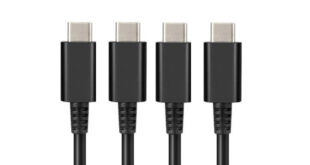Recently, an anonymous publishing executive declared publically that the 3DS is “definitely dead” unless Nintendo generates good sales this Christmas.
The surprising finality of this proclamation, even allowing for the ‘unless’ parachute clause, is by no means singular. Industry history is littered with flawed prognoses of doom for games platforms, which seem to come thicker and faster in times of change such as these.
This month I’ll explore what makes senior industry execs – and journalists – so unafraid to risk their reputations with such bold predictions of outright failure.
Sony’s PlayStation 3 launch was widely described as a ‘failure’ in the games press, as seemingly slow hardware sales after launch week triggered overblown, doom-laden declarations from senior industry figures.
“The PS3 is a total disaster,” said one of the industry’s most vocal and successful CEOs in 2007, advising Sony that “they should just cancel it and do a do over”.
While Sony would undoubtedly have welcomed higher sales in its first 12 months, it was far from the disaster so many declared; and with over 53m unit sales since then, the doomsayers now simply look naive.
IN THE RUNNING
Many went astray by erroneously extrapolating a short-term trend into a long-term one. Despite this being Sony’s third (TV-based) console launch, the doomsayers ignored Sony’s track record and, more relevantly, the same sluggish starts to all its previous consoles’ lives.
Sony pioneered the ten-year console lifecycle with the first PlayStation, then extended it with the second and should accomplish the same longevity with the PS3.
To achieve this, Sony sensibly views console sales as a marathon during which an explosive early sprint – for example, through aggressive pricing – is not only commercially inappropriate but would have proved detrimental to performance later in the race (leaving less room for later sales stimulation by price cuts).
These are lessons that all console manufacturers have begun to take on board.
Besides this commercial myopia, the other explanation for these outbursts derives from publishing execs panicking about their massive investment in new platforms not being sustained by sales in a particular month or quarter and simply seeking someone else to blame for their company’s underperformance (and their over-estimates).
This self-interest lies at the heart of many world-ending pronouncements for broader sections of the games industry.
Retail gaming and the console business as a whole have been declared dead or facing an imminent fatal demise so many times they should be regulars in George Romero movies.
These terminal diagnoses are usually given by those with vested interests in their death; for example, digital distributors or mobile games developers.
Console-oriented companies give as good pessimistic hyperbole as they get; take the still common (and frankly risible) claim that social is just a fad.
THE PSN’D IS NIGH?
Although there certainly are examples of complete commercial failure for certain platforms, most have proven extremely resilient. A great example of this was the PSN outage earlier this year, which generated the full gamut of reactionary headlines and poll research which quantified the extent to which Sony would experience a customer exodus.
“55 per cent said the PSN breach would put them off buying future Sony consoles,” claimed one article.
“Gamers will simply no longer trust Sony,” stated another. The truth was that the PSN outage of April and May plus the accompanying consumer and media furore has had absolutely no negative impact on the ongoing sales of PS3 hardware and retail software sales.
Hardware sales between April and June were actually higher than the previous year as were software sales which even experienced a noticeable upwards spike in May and June.
In the three months since it was restored, PSN has seen three million new registrations and digital sales that are already above pre-outage levels.
In this case, those carrying their ‘the end of the world is nigh’ placards forgot that most PS3 owners have little choice when it comes to high-end gaming (owning no high-spec PC or other consoles).
That there is a sizeable core of console owners whose loyalty survives such tests, and that most players are oblivious to, or simply not interested in, such industry travails.
So, is the anonymous publisher correct in his comments about the 3DS’s prospects? No format enjoys weak holiday sales, so his ‘parachute’ is banal.
This ‘few months to live’ prognosis seems remarkably misguided – as if Nintendo would abandon such a major new format after just nine months on sale. 3D has its flaws and Nintendo its challenges, but 3DS has several tactical tricks to play before giving up the ghost.
Whatever you believe, these panicky views are best taken with a pinch of salt and a longer view.

 MCV/DEVELOP News, events, research and jobs from the games industry
MCV/DEVELOP News, events, research and jobs from the games industry



